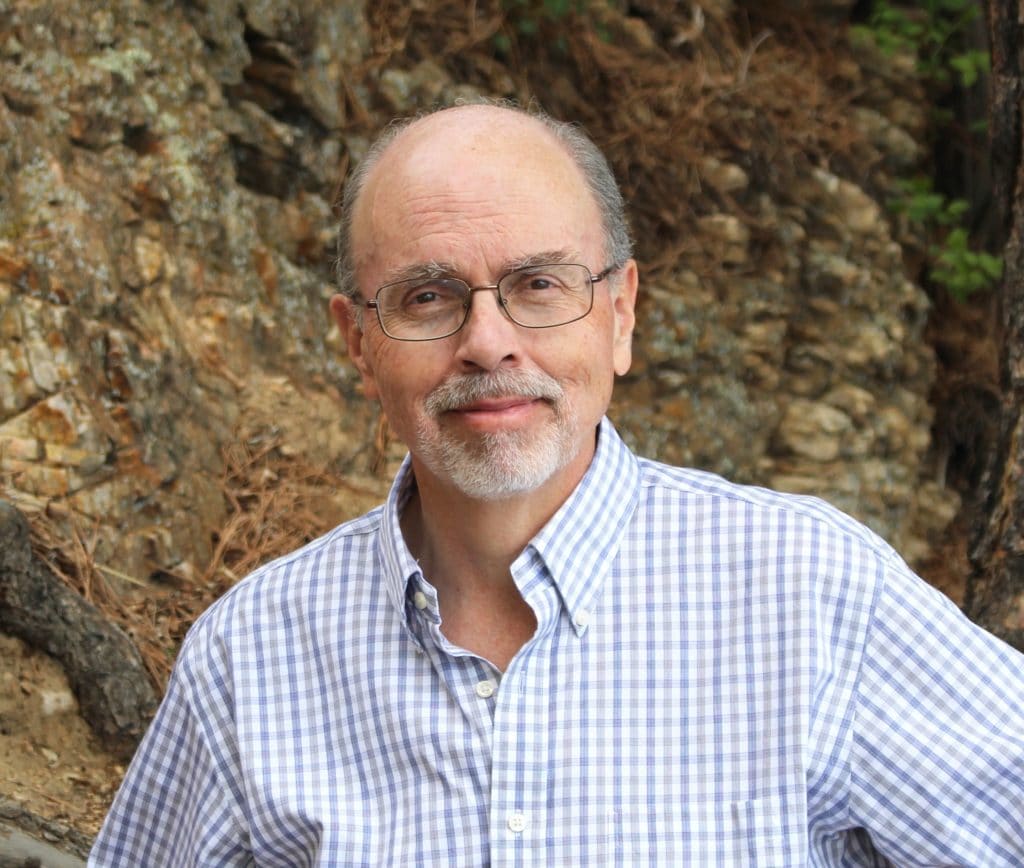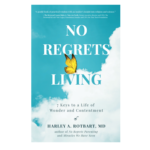The Wellbeing 5 Project
Dr. Harley Rotbart, M.D.
No Regrets Living
The Mental Wellbeing 5
5 Simple Questions to help with mental wellbeing with answers from Experts, Thought Leaders, Campaigners & Advocates
Dr. Harley Rotbart, M.D.
Dr. Rotbart is a parenting expert, pediatrician, author, speaker and educator.
Dr. Rotbart’s latest book, “No Regrets Living: 7 Keys to a Life of Wonder and Contentment” provides a 7-step plan to help us better appreciate what we have in our lives, and take greater pride in what we’ve done with our lives—without spending precious time and energy wishing things had turned out differently.
Dr. Rotbart has been a Pediatrics specialist for the past 37 years. He received his M.D. degree from Cornell University. He was named as one of the Best Doctors in America for 18 consecutive years, as well as receiving numerous other national awards for research, teaching, and clinical work. He has appeared in TV, Print and Radio including: The Dr. Oz Show, CBS’ The Early Show, National Public Radio, Coast-to-Coast Radio, USA Today, Parents Magazine, Time Magazine amongst many others.
Dr. Rotbart has authored multiple books to support different areas of wellbeing including No Regrets Living, Miracles We Have Seen, 940 Saturdays, No Regrets Parenting, Germ Proof Your Kids and The On Deck Circle of Life
Find out more about Dr. Rotbart here

The Mental Wellbeing 5 with Dr. Harley Rotbart, M.D.
1. What is your favourite quote, anecdote, proverb or experience that helps with mental wellbeing?
Dr. Rotbart: “There are only two ways to live your life. One is as though nothing is a miracle. The other is as though everything is a miracle.”
–Albert Einstein
2. What is your top piece of advice for mental wellbeing?
Dr. Rotbart: The country song by Tim McGraw says it best, “Live Like You are Dying.” Each day is precious and the next day isn’t guaranteed. Given a terminal diagnosis, what does the man in the song do? He loved more deeply, spoke more sweetly, became a better husband and friend, gave forgiveness. And then he leaves us his wish that we get the chance to live as he did, as if we are dying. It reminds me of a patient I met as a medical student many years ago who told me he had put off too much for the future, a future he would never have because of the terminal diagnosis he faced in his mid-fifties. He had so many regrets. Yes, part of living like you’re dying is a carpe diem approach to life: making the most of each day, appreciating the wonders and blessings all around, taking advantage of good health to do the things you’ll wish you would have done should health fail you.
But my idea of No Regrets Living is not just about carpe diem or smelling the roses. It’s also about the way we treat people, the relationships we form, the legacy we hope to leave. If tomorrow was suddenly and unexpectedly the last day of your life, would you die owing apologies? Would there be people you didn’t say I love you to enough?
3. What is the one change in the world that you would like to see? (in your area of wellbeing or in the world in general or both)
Dr. Rotbart: The eradication of evil. Of course that sounds impossible – evil has been part of our world since the biblical tale of one brother killing the other in the very beginning of the Bible. So how can I even suggest the eradication of evil as a potential change in the world which would improve our mental (and physical!) wellbeing? Because we have already proven we can eradicate, or severely reduce, plagues of diseases, the scourge of natural disasters, and the impacts of man-made accidents. Over the past 200 years, we have been able to relieve, to a great extent, each of those burdens. And now it’s time to prevent and cure the world of evil.
The root causes of evil, like the root causes of heart disease and diabetes, will, I believe, be identified and addressed. As a pediatrician, though, I can offer a head start in our search. I believe virtually every societal malady can be traced to childhood. The environment in which a child is born and raised is the single greatest determinant of that child’s future as an adult—and their propensity for choosing to do good or evil. Of course there are exceptions, but, as a general rule, a child raised with love and kindness, a child taught tolerance and acceptance, a child witnessing ethical and charitable role models does not turn into Adolf Hitler. Our focus for scientific advances to heal the world, to prevent and someday eradicate evil, must start in the home where that disease starts and spreads from adult to child.
4. Which resources (books / websites / videos etc) for wellbeing would you recommend?
Dr. Rotbart:
John Kabat-Zinn’s, “Full Catastrophe Living”
Herbert Benson’s, “The Relaxation Response”
Rachel Naomi Remen’s, “Kitchen Table Wisdom”
5. What’s the one thing that always makes you smile?
Dr. Rotbart: Instagrams of our grandchildren 🙂
Further Exploration - Dr. Harley Rotbart, M.D.

Website: Dr. Harley Rotbart, M.D.
Dr. Rotbart's website containing information about him, his books and blog, the Miracles Project, his reviews and appearances and how to get in contact

Book: No Regrets Living: 7 Keys to a Life of Wonder and Contentment
Dr. Rotbart's book providing a 7-step plan to help us better appreciate what we have in our lives, and take greater pride in what we’ve done with our lives—without spending precious time and energy wishing things had turned out differently.

Books: Dr. Harley Rotbart
Dr. Rotbart's books to support different area of wellbeing including; No Regrets Living, Miracles We Have Seen, 940 Saturdays, No Regrets Parenting, Germ Proof Your Kids and The On Deck Circle of Life
Social Media - Follow Dr. Rotbart below
More Mental Wellbeing 5 Interviews Below

More Mental Wellbeing 5 Interviews
With answers from experts, thought leaders, advocates and campaigners to help with mental wellbeing



